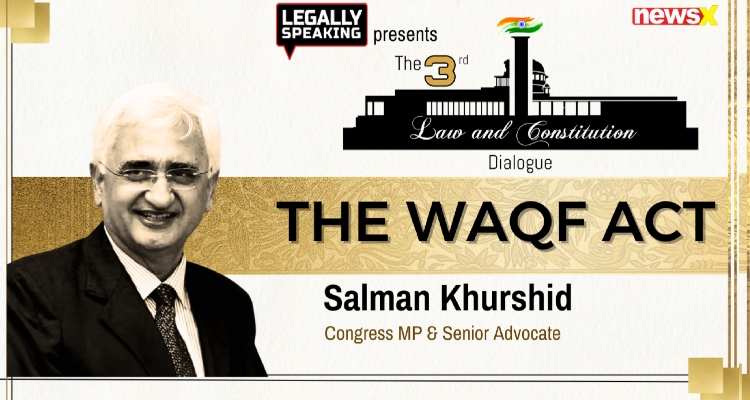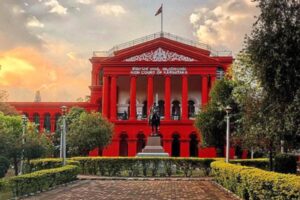
At the Legally Speaking dialogue, Senior Advocate Salman Khurshid offered an insightful analysis of the Waqf Act, focusing on its constitutional, societal, and democratic implications. He lauded certain progressive reforms, such as the inclusion of Muslim women on Waqf boards, while cautioning against provisions that could undermine democratic principles and established jurisprudence.
Inclusion of Muslim Women: A Progressive Milestone
Khurshid highlighted the mandatory inclusion of Muslim women on Waqf boards as a key provision of the proposed bill, describing it as a long-overdue step toward gender representation. He framed this reform within the broader context of Islamic tradition:
“Women have always played significant roles, and this reform aligns with progressive principles.”
However, Khurshid stressed the importance of implementing such measures transparently to ensure fairness and avoid tokenism.
Concerns Over Democratic Erosion
While supporting inclusivity, Khurshid raised serious concerns about the bill’s proposal to replace elected Waqf board members with government appointees. He warned that this change risks undermining democratic governance unless conducted through a transparent and bipartisan process:
“Reforms should enhance democracy, not erode it.”
He emphasized the need for accountability and balance in governance, cautioning that excessive centralization of authority could lead to autocracy.
Understanding Waqf: Religious, Social, and Economic Dimensions
Khurshid elaborated on the multifaceted role of Waqf institutions, which serve as a safety net for underprivileged sections of society and are protected under Article 26 of the Constitution. Reflecting on the current misunderstandings surrounding Waqf, he observed:
“In India, we seem to know less about each other’s religions today than we did in the past, despite living in an age of information.”
He also highlighted cultural contrasts in addressing societal obligations, noting how Islamic traditions prioritize the welfare of progeny, compared to the ancestral emphasis in Hindu traditions.
Challenges to Inheritance Rights and “Lost Grants”
Khurshid expressed reservations about proposed changes to inheritance-related provisions and the removal of the principle of “lost grants,” which recognizes properties historically used as Waqf even without documentation. He argued that such reforms could disrupt the foundational jurisprudence of Waqf:
“These changes could alter the foundational jurisprudence of Waqf.”
Regulation vs. Constitutional Safeguards
Discussing proposals to grant district collectors greater authority and involve the Comptroller and Auditor General (CAG) in Waqf property audits, Khurshid acknowledged the need for better regulation but cautioned against compromising constitutional safeguards:
“Regulation must not come at the cost of constitutional safeguards or democratic values.”
He underscored the importance of balancing efficiency with respect for tradition and constitutional principles.
Key Takeaways
The inclusion of Muslim women on Waqf boards is a significant and progressive reform that enhances representation.
Proposals to replace elected Waqf board members with government appointees raise concerns about the erosion of democratic values.
Changes to inheritance rights and the principle of “lost grants” challenge long-standing Waqf jurisprudence.
Increased regulatory oversight, including CAG audits, must respect constitutional safeguards.
Khurshid concluded with a call for reforms that are guided by transparency, fairness, and adherence to democratic and constitutional values. As he aptly summarized:
“The inclusion of women is commendable, but every step must be guided by transparency and fairness.”
Read More: Justice Sanjay Kaul Opens Up On The Genocide Of Kashmiri Pandits | Legally Speaking Dialogue




